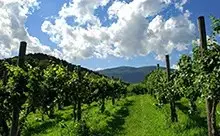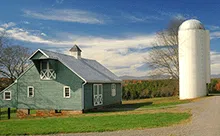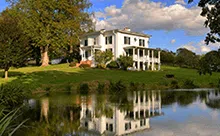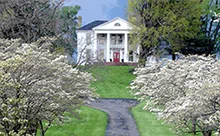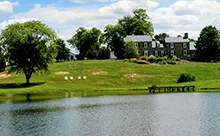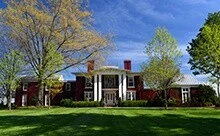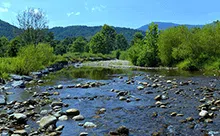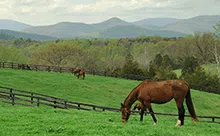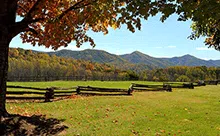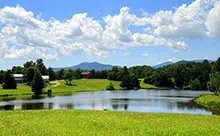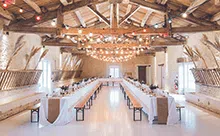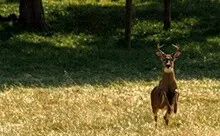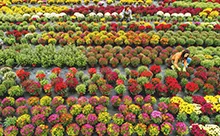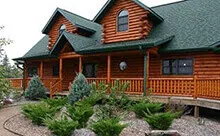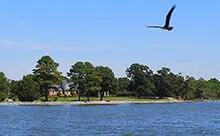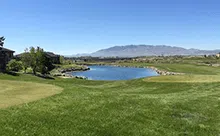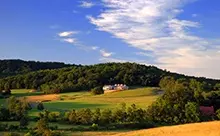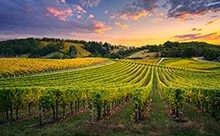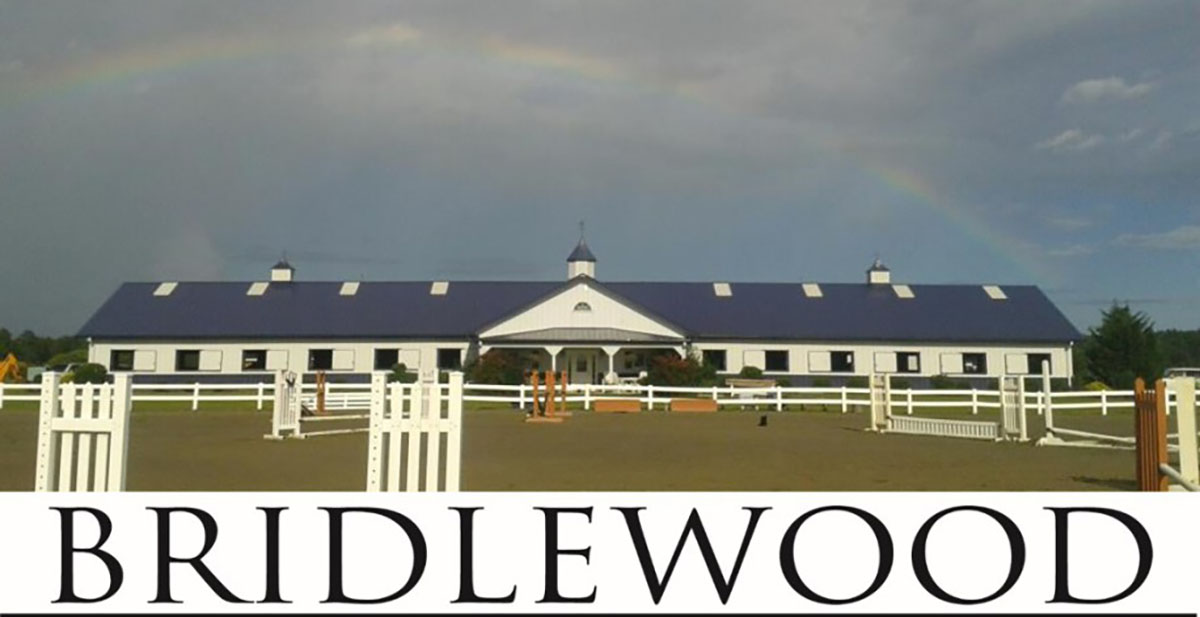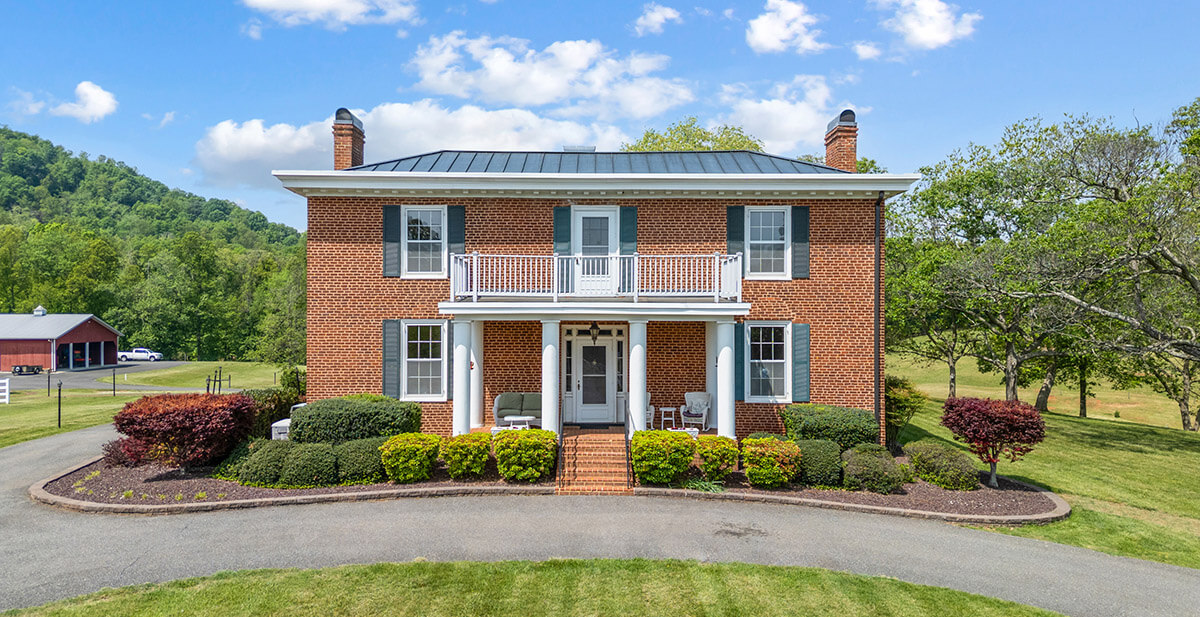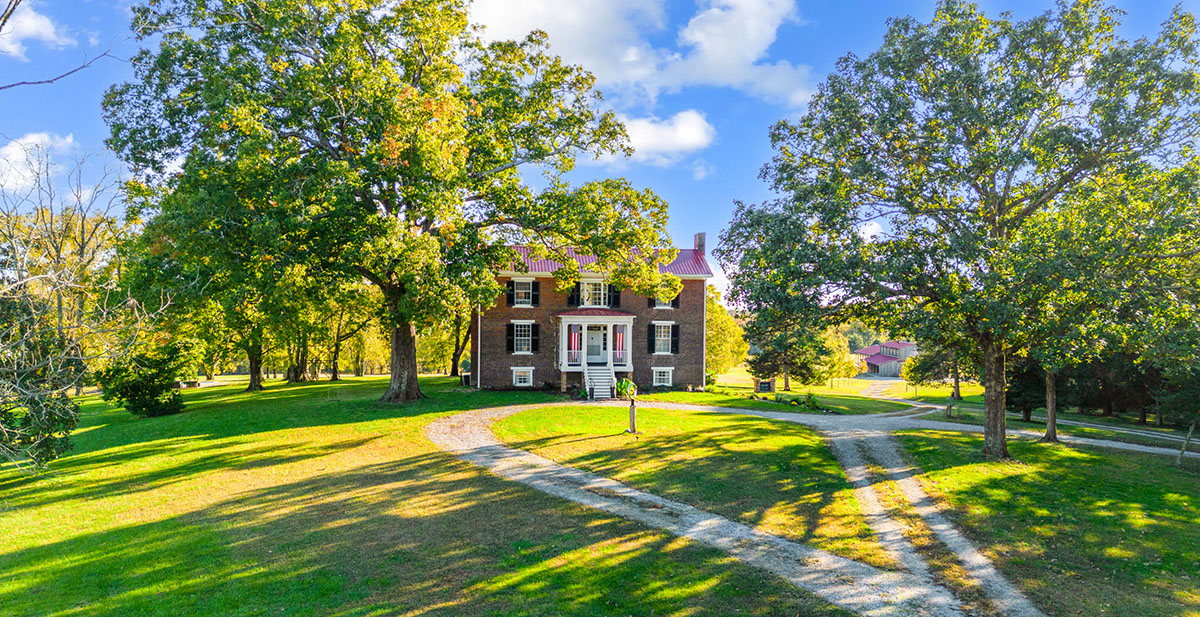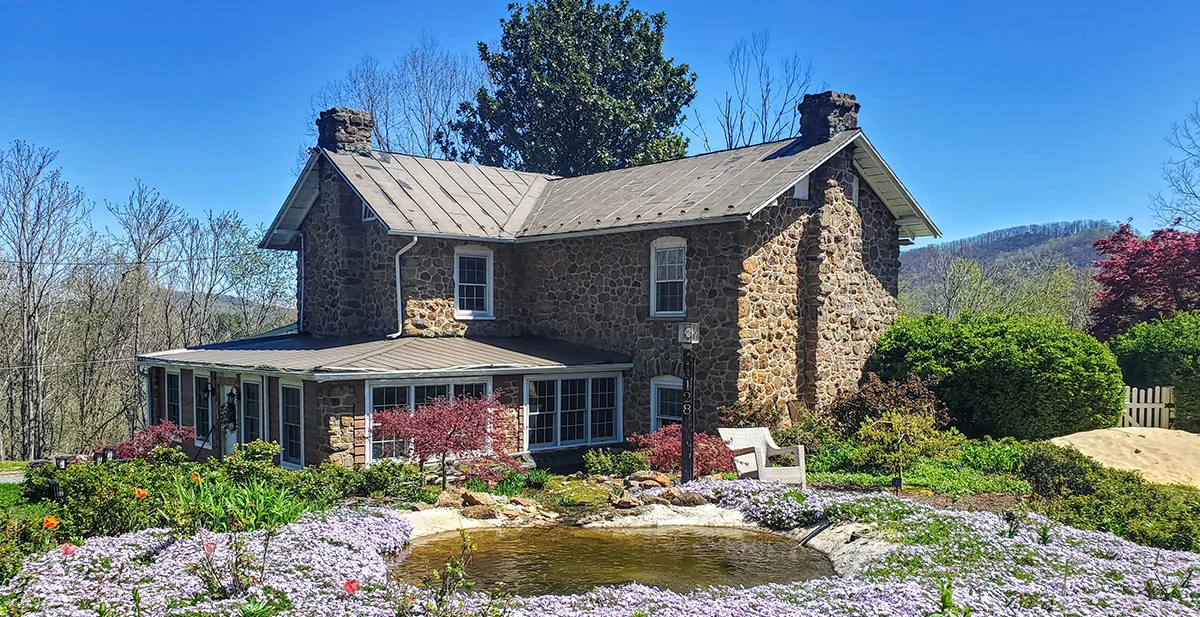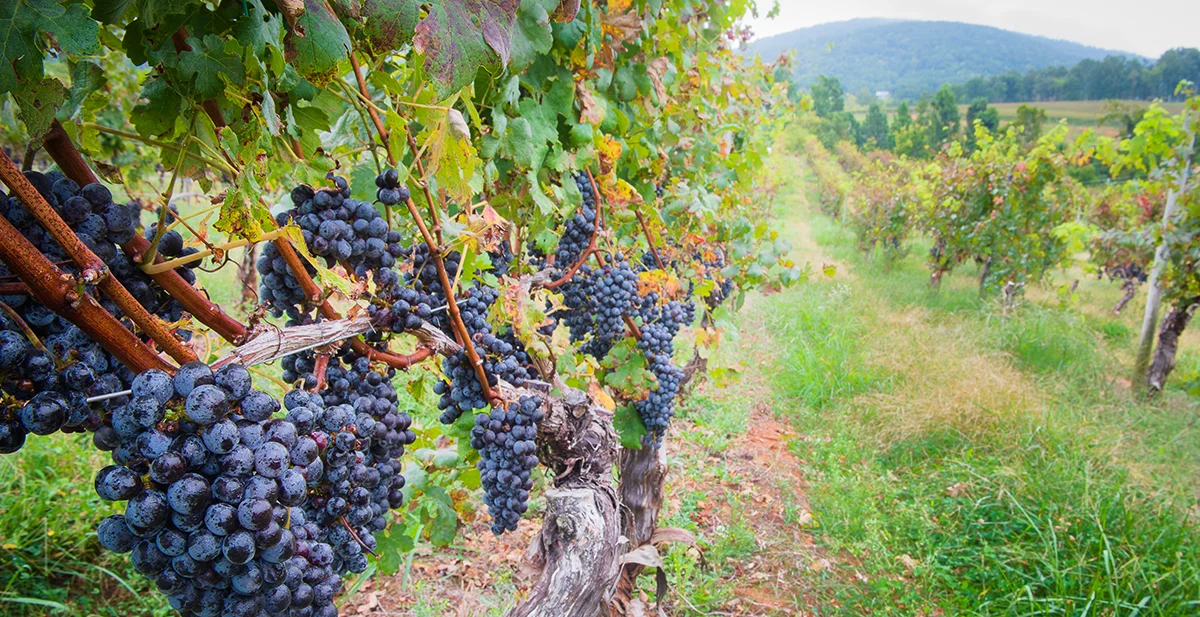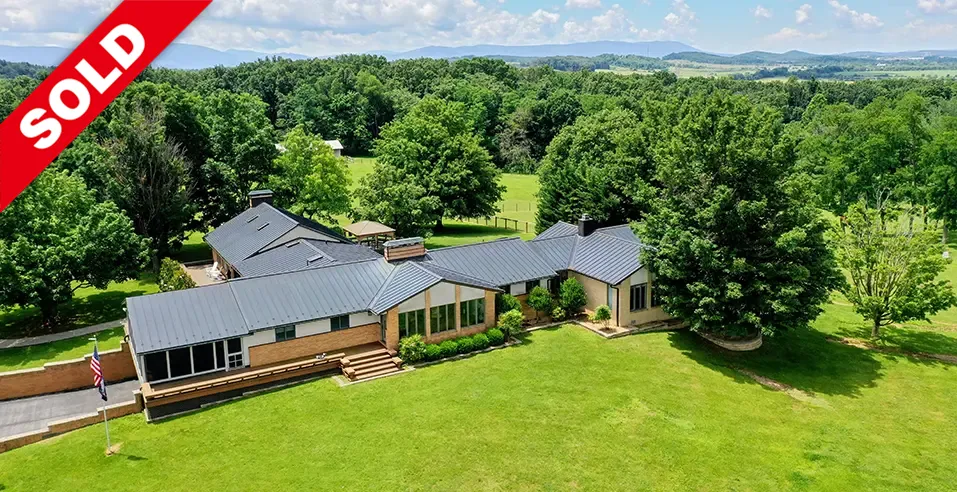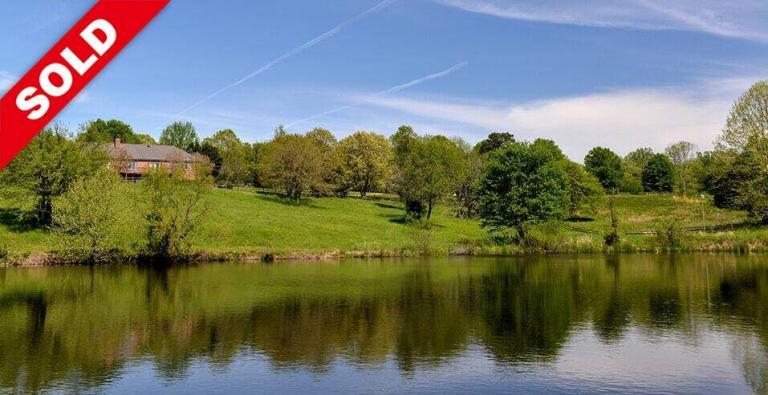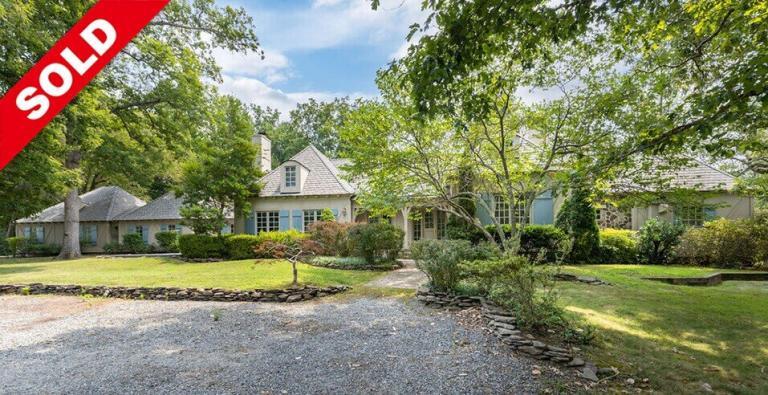
home / virginia real estate / farms / types of virginia farms / the virginia horse farm
The Virginia Horse Farm
The Equestrian Farm is a farm that offers many tangible benefits. Whether they be from the financially beneficial aspects, as you profitably run a race horse breeding farm, or simply run a boarding farm with hunters and jumpers on a property that houses not only one of the most beautiful creatures on Earth but that also has the view of the Blue Ridge Mountains.
Can you just picture your horse herd racing across a grassy meadow to drink from the Christian Creek or any of the creeks that wind through the countryside?
Horse farms, regardless of breed or type, all share similar requirements. When looking for your little slice of heaven, your realtor should be knowledgeable of the farms available as well as the requirements of the horses themselves. You will want your horse farm to contain the following elements:
- Barn
- Pasture
- Fencing
- Auxiliary Structures
The Horse Barn
A horse farm requires several important features. First of course is a horse barn. A horse barn should be of a generous size. Stalls should be comfortable for the days when your steeds will be staying indoors due to inclement weather. (A horse running around in the rain can be dangerous for him, as well as destructive to the pasture).
Your barn should have adequate lighting, plenty of ventilation while at the same time be able to be buttoned up on those frigid winter evenings. You will want a feed room that can maintain the security of your grains, and some medicines.
These items need protection from not only your horses, but the ubiquitous native wildlife that see grain as an invitation to dinner. And you will want a tack room to store your saddles and bridles.
The Pasture
The pastures need to be fairly grand. The rule of thumb for horse density ranges from 1 to 3 acres per horse, and that number is subject to the quality of the pasture as well as the size of the horse. One thing for certain though, baled hay will be part of your horse farm experience.
A smart arrangement is to have sufficient acreage to be able to have some acreage set aside for hay. Some are able to find a farmer willing to bale the hay and place some in your barn in return for his use of your field.
Horses thrive on timothy, fescue (watch out for endophytes, which can hurt a mother’s milk), and they just love clover. It is simple enough to be certain the pasture contains grasses, and not just weeds.
The Fences
Your equine investment will need to be contained. No animal on Earth believes in the old adage about grass being greener on the other side of the fence than a horse. Horse fences should be at least 4 feet tall, and they are available in many different materials.
The least expensive horse fence is the 4 foot wire fence, with squares that are smaller at the bottom to prevent hooves from going through and bigger at the top. Many equine farms will settle for nothing less than a four board fence. The key word, whether metal, wood or even plastic is “sturdy.”
You can learn more about fencing in our Virginia Farm Buyer’s Guide.
Auxiliary Structures
Other considerations, depending on your use plan would be for designated buildings and areas. An indoor or outdoor riding ring is essential for controlling the equine traffic while working on the patterns of dressage, jumping, or even, dare I say, barrel racing.
And you may have need for a breeding shed, where there can be a little privacy for the more delicate endeavors. A separate structure to store tractors and implements away from the animals themselves is convenient and a safer way to proceed. And of course you need a manure area. There can be some interesting regulations about this.
The EPA has some guidelines if you are going to amass manure in one place regarding storage, drainage and final disposal of manure.
Find your horse farm. Allow a team of professional realtors to help you find a farm that possesses all the elements necessary for a successful operation. Find yourself on the “green” side of the fence.


















